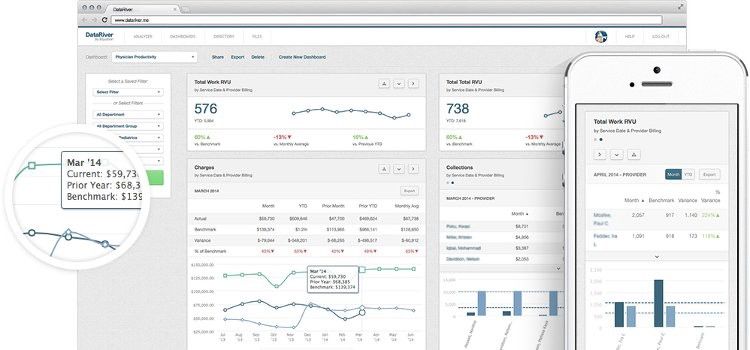The evolution of big data, tech startups, and analytics, is to push into entities like healthcare the idea that we can do this faster, cheaper, and better than you ever will. We can do it right now, instead of you trying to figure this out and spend millions of dollars over the next couple years.
We’re floating through life on a river of data. Anything you could ever want to know is one click away: Why is Aaron Rodgers so good at football? Because he’s a machine sent from the future to destroy human life one incredible pass at a time. Why is Bob Dylan so good at music? Because he smoked tons of weed and did a decent amount of drugs. Any questions you might have on life, death, or anything in between, can all be answered in a matter of seconds.
As we drift lazily down this current of information, the problem becomes clear: getting data isn’t the problem, but knowing what to do with that data is. This problem has given rise to the big data solution, where numerous companies have popped up that can quickly, efficiently, and cost-effectively mine your business data for gold. Most industries have embraced this data revolution, but a notable few have lagged behind.
Healthcare is one of these industries that lags behind the curve. There is infinite amounts of healthcare information available, but very few options available for taking that data and shaping it into something useful and intelligible.
In 2006, a company named Equation Consulting was formed (recently re-branded as Equation). They focused on using data in healthcare to answer common problems for executives and leaders, which gave them the perfect opportunity to learn the IT (Information Technology) of healthcare and the IT of data warehousing. It was during this process that a realization occurred, healthcare needed a platform that could organize every bit of information (from physicians, hospitals, payroll, general ledger, etc.) and make sense of the jumble. From this idea, DataRiver was introduced.
“It’s an end-to-end BI (Business Intelligence) solution for healthcare,” Equation COO Cory Carrigan said. “We warehouse various data infrastructures in healthcare, put it in a useful format, and deliver it to three segments of users: executives, management, and business analysts. We’ve developed tools that speak to each one of them, so that the BI is really fit for the user.”
DataRiver centers on vastly improving the process of data visibility. Numbers and information do no good if you can’t properly interpret them and then figure out how to use that data to better your business. That is exactly what DataRiver is designed to do.
“We pull the data onto our side, we’re experts at data warehousing and IT, we pull their IT department completely out of it, and then we translate that information back to them in a useful way, knowing the common questions they have around the data and what value they can get out of it,” Carrigan said.
Healthcare business intelligence allows healthcare professionals to concentrate on the things they’re supposed to be doing, like gagging you with wooden sticks or making you wait for large amounts of time clothed only in a thin gown.
Instead of spending time making sense of the river of data pouring in, DataRiver allows physicians to be physicians.
“One of the biggest challenges that executives in healthcare have with physicians is communicating with them around economic-type topics, like profit/loss and productivity,” Carrigan said. “We’ve developed a tool that actually sends out this information to physicians and tracks how they’re interacting with it, then we can report that information back to the entity. So they know which physicians got it, did they read it, did they interact with it, and how often are they interacting with it.”
Doing a job you aren’t qualified for is stupid. I’m not going to start fixing plumbing problems, because the entire world would end up swamped with the disturbing sights and sounds of raw sewage.
Equation’s DataRiver platform demands professionality: they will spin your healthcare data from simple yarn into a nice and hearty woolen sweater (something they are qualified to do), and you can concentrate on providing the best healthcare possible (something you are qualified to do). Basically, the professional world at its finest.
“Healthcare is not in the business to be experts in data and IT, they’re in the business to deliver excellent premier care to patients and help them live longer lives,” Carrigan said. “The evolution of big data, tech startups, and analytics, is to push into entities like healthcare the idea that we can do this faster, cheaper, and better than you ever will. We can do it right now, instead of you trying to figure this out and spend millions of dollars over the next couple years.”
Published 5/22/2015




